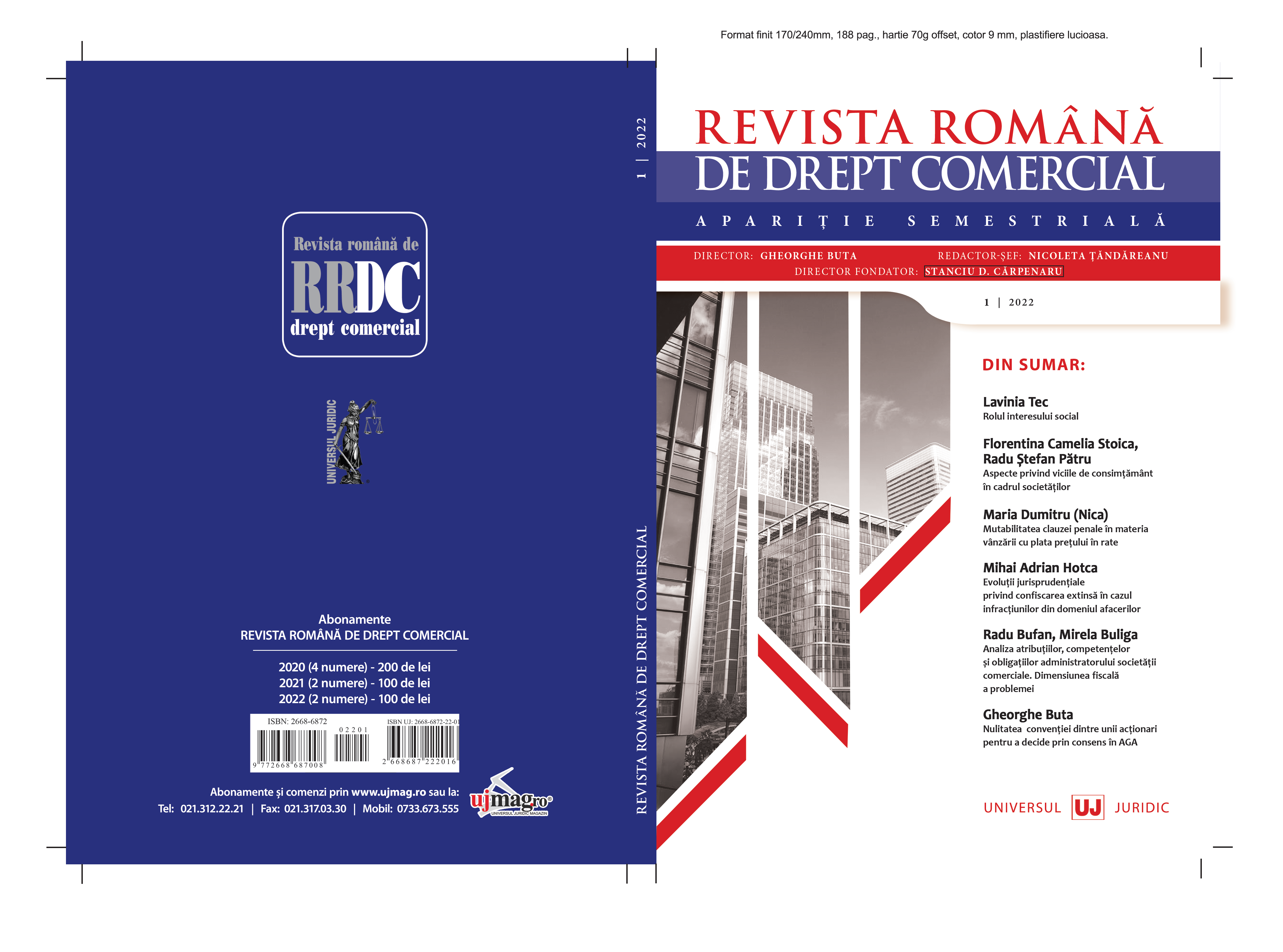Înlocuirea administratorului/lichidatorului judiciar ca sancţiune în dreptul insolvenţei
Replacement of the administrator/judicial liquidator as a sanction in insolvency law
Author(s): Raul-Felix Hodoş, Daniela MicuSubject(s): Law, Constitution, Jurisprudence, Civil Law, EU-Legislation
Published by: Universul Juridic
Keywords: replacement of the judicial administrator/judicial liquidator; Law no. 64/1995; Law no. 85/2006; Law no. 85/2014; legal sanction; solid reasons;
Summary/Abstract: The judicial administrators, respectively the judicial liquidators, exercise a function characterized by a dual legal nature: legal and conventional. On the one hand, from a legal point of view, it is easier for us to identify the good reasons that could lead to the replacement of the insolvency practitioner in these positions as a sanction of insolvency law, related to his obligations according to paragraphs 5 and 6 of section 2, from Chapter I of Title II of Law no. 85/2014. On the other hand, it is necessary to analyse the extent of these obligations and, consequently, their fulfilment, because of the involvement of creditors through the Creditors' Committee and the Creditors' Assembly, respectively, in the negotiation, appointment or confirmation procedure of an insolvency practitioner as judicial administrator/liquidator. Thus, the arguments for replacing the insolvent practitioner in the position held must be based on the precise knowledge of the obligations’ extent in the performance of his duties. The sanction of replacement from the position of judicial administrator/liquidator must also be analysed in relation to the mixed nature of its nature. The replacement decision pronounced by the judge has multiple and extremely diverse effects, the syndic judge being the one who must weigh the reasons for admitting such a request and the consequences it produces, and not only directly related to the procedure, but especially to legal relations which are established between the judicial administrator/liquidator and the debtor, respectively creditors. However, such an analysis also requires a look at the appropriateness of such a measure. Different interpretations of the participants’ attributions in the procedure, including related to limitations in the analysis of the opportunity by the syndic judge of some acts of the judicial administrator/liquidator based on the provisions of art. 45 para. (2) of Law no. 85/2014, led to a non-unitary practice at the level of the courts regarding the application of the sanction in question. The interests of all those involved in the proceedings must be protected, so that it is necessary for the sanction of replacing the judicial administrator/liquidator to take place only in well-defined cases and only as a last resort.
Journal: Revista română de drept comercial
- Issue Year: 2022
- Issue No: 01
- Page Range: 50-62
- Page Count: 13
- Language: Romanian
- Content File-PDF

